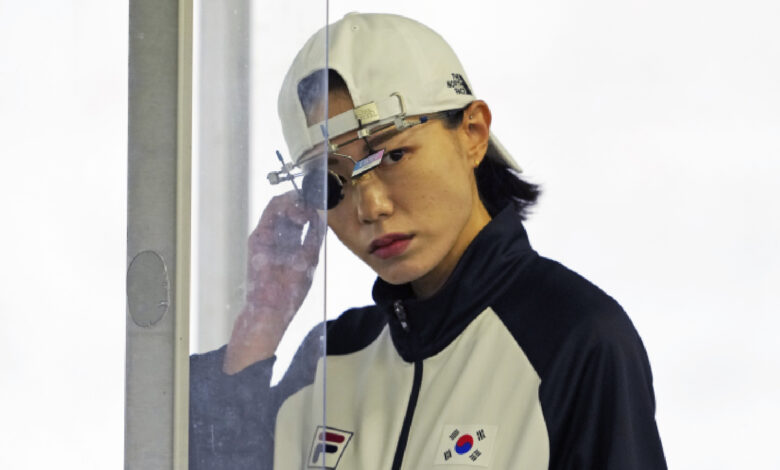How Kim Yeji and Paris Olympics gold medall Ji-in Yang are making Koreans fall in love with shooting | Sport-others News

If the popularity of sports in South Korea were to be measured on a seismograph, shooting barely regers a node.It doesn’t have the national devotion dedicated to Tottenham Hotspur forward Hueng Min-Son or the increasing following of baseball. Even though the world for one August fell in love with soon-to-be movie star/assassin Kim Yeji, the sport hasn’t really picked up even though Korean shooters remain consent in their medal-winning exploits.
When former 25m pol shooting world record holder Ji-in Yang landed back in Seoul after winning the gold at the Paris Olympics – an event in which Manu Bhaker finished narrowly out of medal positions – she was surprised to see the number of people who were able to recognise her. That surprise increased when she returned to her village of Haju to see a giant poster of her, and a group of people lining up to take pictures with her.
“When I reached home, there were so many flags and banners made people in my village. When I went to my university, the same thing happened. Initially I felt a little embarrassed because I’m not used to these kinds of celebrations, especially when my name and face were on the banners. But I’m now getting better at it,” Yang said.
At the opening ceremony of the World Cup in New Delhi, her father collected the ISSF award for the ‘Best Female shooter of the year’. A delay in visa meant she couldn’t be there to pick up the award herself.
At just 21, Yang is another crack Korean aimbot – from a country that consently churns out some of the best in the world. She was part of a shooting club in middle school when her talents were first noticed. She started taking part in national competitions soon enough. The Korean calendar usually has 4-5 domestic competitions that carry all the weight of selection for the national team. Such is their level of competition that shooters usually put up winning scores that are at par internationally. Yang was one of the young prodigies pushed into the national team because of her impressive scores and calm demeanour.
Convincing parents
Her parents, though, were unsure of a career as a shooter. Yang had to drop her studies to continue in the sport, a decision met with some opposition at home.
“When I first told them that I wanted to do shooting, there was sort of a ‘negative reaction’ from my parents. But then they came for one of my national competitions and the results over there were not that bad. They wanted me to continue my studies but after they saw that match, they felt I was good enough at this to continue,” said Yang.
At the Hangzhou Asian Games, Yang was expected to enjoy her first win at a senior multi-sport event, but was instead reduced to tears after not winning the gold. She later said that she was worried about it being her debut Asian Games, which led to many tears and eventually her feelings started to overwhelm her. But after the Asiad, Yang doubled down on her training and focused on exercises to keep calm during her match.
“Before the Olympics, I trained specifically for when I would get nervous during a match. When I reached Paris, I was never in a state of too much happiness, or any other emotion. I remained calm throughout,” she said.
After the Paris Games, most of India’s Olympic squad chose to take a break and gave the year-end World Cup in New Delhi a miss. Those included Bhaker, who is slowly coming back from injuries, and Sift Kaur Samra, who was injured but is back in training for the World University Games. For Korean athletes though, the year-long schedule hasn’t allowed a break. Recently Kim Yeji, another Korean Olympic shooter who went viral during the Paris Games for her style of shooting, fainted at a press conference, later citing stress and lack of rest.
“I also wanted to have some time to rest, but there were lots of important national competitions going on right after the Olympics,” says Yang. “I also didn’t get much time to take my Olympic gold medal victory in. But this kind of participation makes our quality as shooters better.”



